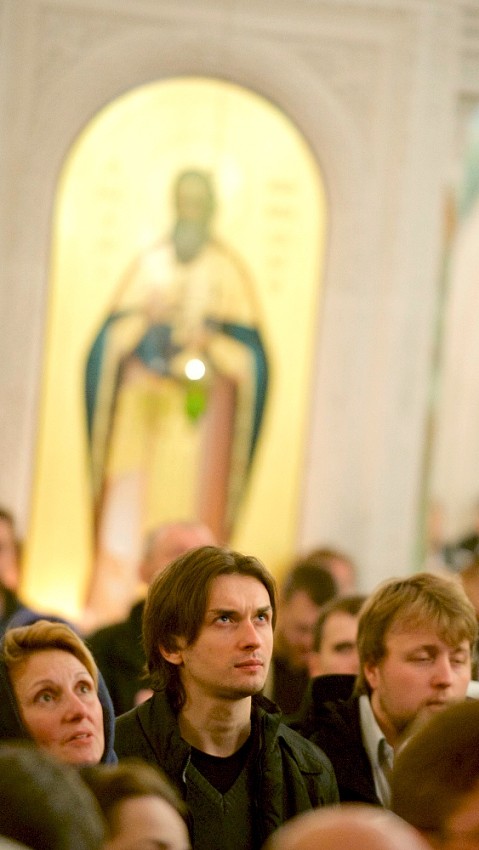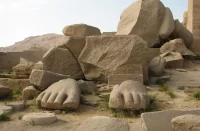As we often have to argue with the Western advocates of a shallow concept of the Human Rights, being nevertheless aggressively imposed on all civilizations on this planet, today we would like to bring to your attention the following text, which always imspires us in such polemics:
- Each person as an image of God has singular unalienable worth,which must be respected by every one of us, including the society and the state. It is by doing good that a human being gains dignity. Thus we distinguish between human worth and dignity. Worth is given, while dignity is acquired.
- Eternal moral laws have a solid foundation in the human soul, which is independent of one’s culture, ethnic origin, or life circumstances. This foundation is laid down by the Creator within human nature and is manifested in human conscience. The voice of conscience, however,can be muffled by sin. Precisely for this reason, a religious tradition that has God as its Origin is needed to help discern between good and evil.
- We can discern two kinds of freedom: inner freedom from evil and the freedom of moral choice. Freedom from evil is valuable per se, while freedom of choice gains value and a person gains dignity when the chosen alternative is good. Conversely, freedom of choice leads to self-destruction and the loss of human dignity when the choice is evil.
- Human rights are based on an individual’s worth and should have as their goal the realization of that person’s human dignity. Therefore, at their essence, human rights involve morality. Any separation of these rights from morality results in their profanation, the very concept of “immoral dignity” is an oxymoron.
- We support the right to life and oppose the “right” to death; we are for the right to create and against the “right” to destroy. Human rights and liberties are effective inasmuch as they help an individual to ascend toward what is good, defend an individual from evil within and without, and promote that individual’s positive role in society. It is from this perspective that we respect not only civil and political rights and liberties, but also social, economic, and cultural rights.
- Rights and liberties are inseparable from human obligations and responsibilities. An individual in pursuit of his personal interests is called upon to balance them against those of his neighbor, family, community, nation, and all humanity.
- Other values also exist that are no less important than human rights. These are faith, morality, the sacred, and the motherland. Whenever these values come into conflict with the implementation of human rights, the task of society , the state, and the law is to bring both into harmony. It is unacceptable, in the pursuit of human rights, to oppress faith and moral tradition, insult religious or national feelings, cause harm to revered holy objects or sites, or to place one’s motherland in jeopardy. Likewise, we view as dangerous the “invention” of “rights” such as the legitimization of behavior condemned by both traditional morality and historical religions.
- We reject the policy of double standards with regard to human rights, as well as attempts to use them for political, ideological, military,or economic purposes, or to impose a particular sociopolitical system.
- We are willing to cooperate with all benevolent forces to ensure human rights. Particularly important in this cooperation is the preservation of the rights of nations and ethnic groups to their religion, language, and culture, defense of the freedom of conscience and the right of believers to their own way of life, the battle against ethnically and religiously motivated crime, protection against arbitrary actions taken by the authorities or employers, concern for the rights of servicemen, defense of the rights of children, responsibility for inmates and other persons in state custody, protection for the victims of destructive sects, opposition to the idea of total control over private life and personal convictions, and measures to protect the public from being caught up in crime, corruption, the slave trade, prostitution, drug addiction, or compulsive gambling.
- We seek a dialog with people of diverse faiths and views regarding human rights and their place in the hierarchy of values. More than anything else today, this dialog will help to avoid a conflict between civilizations while leading to a peaceful diversity of worldviews, cultures, and legal and political systems around the globe. Human beings will find that their very future depends on their success in this endeavor.
***
This generally unknown text that you have just read is the Declaration Human Rights And Dignity, adopted in Moscow by the World Russian People’s Council in 2006 and exclusively translated by ORIENTAL REVIEW. The full English text of Declaration can also be downloaded here in PDF.















Pingback: Droits de l’homme et dignité humaine | Réseau International
Pingback: Droits de l’homme et dignité humaine - AncienProfesseur
I distrust the notion of “rights” – I would rather believe in the notion of human wishes or desires or needs (see f. ex. Maslov’s Pyramid). And these needs have to be constantly defended – if you think the world owes you these “rights” you will be sorely disappointed and especially so if these words are only used as political propaganda.
But I agree with your basic approach – our deeper motivations often involve a battle between feelings of Superiority/feelings of Power/disregard for others (what you call “evil”) on the one hand and respect for and desire for constructive collaboration with others (what you call “good”).
So finally I only distrust the word “rights” and that’s because it implies an idea of coercion: you HAVE to believe in these rights as defined by the authors otherwise you are bad. An example of this would be the current discussions about immigration.
Pingback: The New Putin: What To Expect From Russia In The Next Six Years? | OrientalReview.org
Pingback: Le nouveau Poutine : à quoi s’attendre de la Russie dans les six prochaines années? | Réseau International
Pingback: The New Putin: What To Expect From Russia In The Next Six Years? | Réseau International (english)